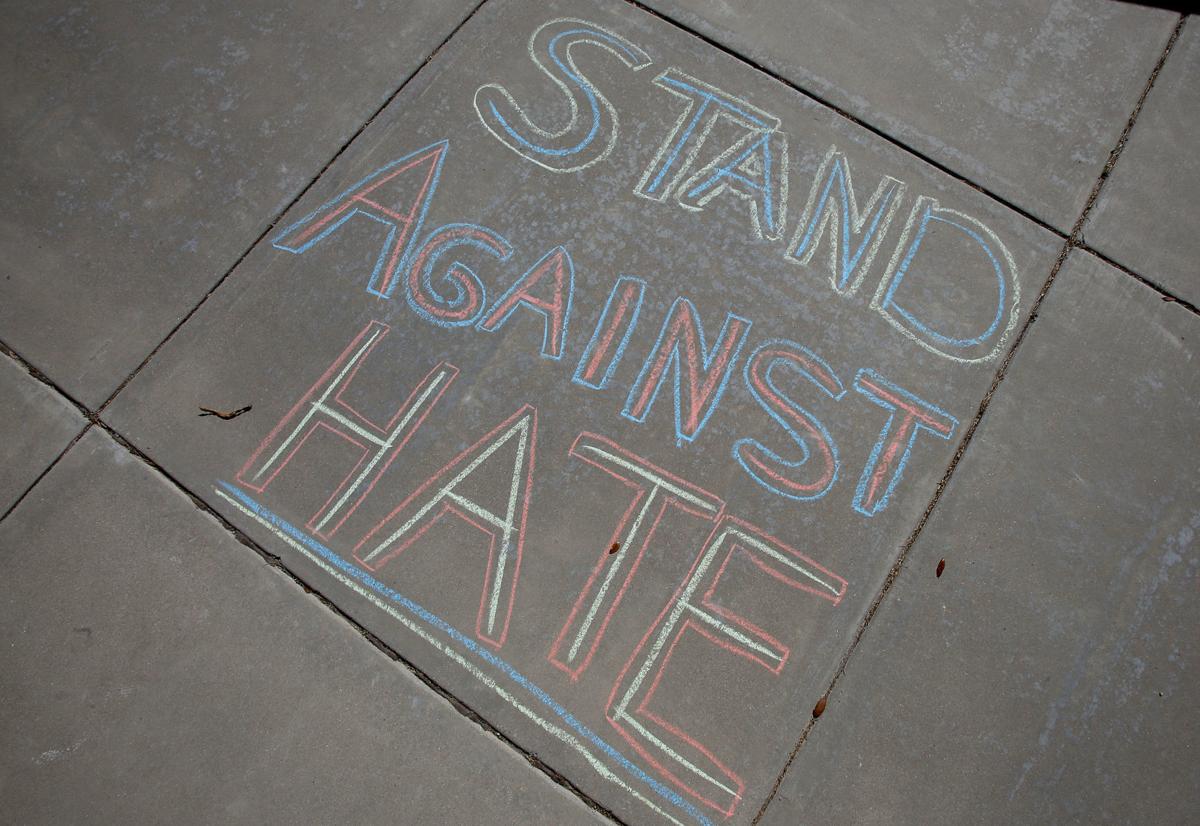Reported hate crimes were on the rise in Arizona last year, to the tune of 24 percent, while reports in Tucson and Pima County remained stable, data released from the FBI earlier this month show.
The FBI released its 2017 data on hate crimes Nov. 13, showing a 17 percent increase in reports nationwide from 2016.
Law enforcement agencies across the country reported 7,175 hate crimes in 2017, up from 6,121 the year before.
In Arizona, reported hate crimes in 2017 grew to 264 from the 213 reported in 2016.
But the number of reports filed with the Tucson Police Department show that hate crimes did not increase from 2016 to 2017, with five reports each year.
In 2016, the Pima County Sheriff’s Department reported one hate crime incident. In 2017, the number of reports increased to two.
According to the FBI’s report, the most-common type of bias in incidents involving a single bias was race/ethnicity/ancestry, which represented nearly 60 percent of the complaints nationwide.
Religious bias was reported in nearly 21 percent of complaints, and sexual-orientation bias in nearly 16 percent of complaints.
In addition to the single-bias incidents, there were 69 multiple-bias hate crimes reported in 2017, according to the FBI report.
Of the five incidents reported to Tucson police in 2017, one involved religious bias, three involved bias toward a person’s sexual orientation and one was a bias involving a disability.
Both incidents reported to the Pima County Sheriff’s Department in 2017 involved bias toward a person’s race/ethnicity/ancestry, according to the FBI report.
On the University of Arizona campus, UA police officers responded to three hate-crime reports in 2017, one each for race/ethnicity/ancestry, religion and sexual orientation.
While Tucson’s numbers are holding steady, hate crimes are on the rise in Phoenix, with incidents reported to Phoenix police making up more than 80 percent of the state’s numbers.
That should be of concern to the whole state, said Kelly Fryer, CEO of the YWCA of Southern Arizona.
“Right after the 2016 election, there was a huge spike (in reported hateful acts),” Fryer said.
“At the end of November, about 500 people showed up at the YWCA. We were prepared for about 75, so there really was, in Tucson, an outpouring of concern and outrage and a sense of real solidarity that happened in those months following the election. And that’s continued.”
Fryer said the YWCA has seen close to 2,000 people participate in anti-racism and inclusion training since the 2016 election.
The Pima County Legal Defender’s Office and the Pima County library system have provided training for employees on issues of structural racism and unconscious bias, something that Fryer said she’d like to see happen at the state Capitol, the Legislature and elsewhere in state government.
“I don’t think it would be fair to paint Tucson as being perfect, but just through the YWCA, we’ve been doing inclusion training with city and county agencies, with nonprofit organizations and with at least one school district, and really working,” Fryer said.
“I think there’s a real awareness among leaders in Tucson that this is an issue, and they’re taking concrete steps to address it.
“I’d like to see that happen across the state and starting with our elected leaders in Phoenix.
“We deserve better than this. To have Arizona be one of the top states in the country where hate crimes are flourishing, I think it’s time we take serious action.”





